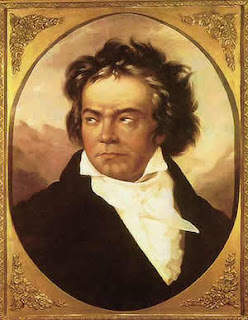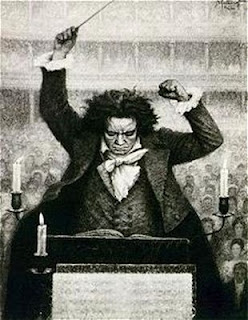Sheet music is the oldest and consists by the legendary artist. Most famous sheet music is Ludwig van Beethoven sheet music. The Beethoven's symphonies and his sonatas are very popular among immense amount of music lovers all over the world.
 Other then the Ludwig there is lots of sheet music composers like Johannes Brahms, Franz Liszt, Robert Schumann and Wolfgang Amadeus Mozart which are also in the list of the top0 sheet music composers. In case you need to know more about the greatness of the genius sheet music composers, then you can go to the net sheet music sites that offer great reader exact knowledge regarding their life, music and compositions made by them.
Other then the Ludwig there is lots of sheet music composers like Johannes Brahms, Franz Liszt, Robert Schumann and Wolfgang Amadeus Mozart which are also in the list of the top0 sheet music composers. In case you need to know more about the greatness of the genius sheet music composers, then you can go to the net sheet music sites that offer great reader exact knowledge regarding their life, music and compositions made by them.Mozart is deemed as number composer across the world. Sheet music composed by him is in much demand. So to get the Free Mozart Sheet Music or sheet music of the composers the net is cease way. These sites also help you in searching the best and simple violin sheet music. All music lovers can emulate the work of your favourite musician and can compose Sheet music according to our imagination and creativity on the paper.
 The sheet music sites also include categories of Sheet music like concerto, romantic, medieval and Online Flute Sheet Music also. Also these sites contain the list of various musical instruments; cello, guitar, piano, violin, flute and lots of more.Other then the Ludwig there is lots of sheet music composers like Johannes Brahms, Franz Liszt, Robert Schumann and Wolfgang Amadeus Mozart which are also in the list of the top0 sheet music composers. In case you need to know more about the greatness of the genius sheet music composers, then you can go to the net sheet music sites that offer great reader exact knowledge regarding their life, music and compositions made by them.
The sheet music sites also include categories of Sheet music like concerto, romantic, medieval and Online Flute Sheet Music also. Also these sites contain the list of various musical instruments; cello, guitar, piano, violin, flute and lots of more.Other then the Ludwig there is lots of sheet music composers like Johannes Brahms, Franz Liszt, Robert Schumann and Wolfgang Amadeus Mozart which are also in the list of the top0 sheet music composers. In case you need to know more about the greatness of the genius sheet music composers, then you can go to the net sheet music sites that offer great reader exact knowledge regarding their life, music and compositions made by them. Mozart is deemed as number composer across the world. Sheet music composed by him is in much demand. So to get the Free Mozart Sheet Music or sheet music of the composers the net is cease way. These sites also help you in searching the best and simple violin sheet music. All music lovers can emulate the work of your favourite musician and can compose Sheet music according to our imagination and creativity on the paper.
Mozart is deemed as number composer across the world. Sheet music composed by him is in much demand. So to get the Free Mozart Sheet Music or sheet music of the composers the net is cease way. These sites also help you in searching the best and simple violin sheet music. All music lovers can emulate the work of your favourite musician and can compose Sheet music according to our imagination and creativity on the paper.
The sheet music sites also include categories of Sheet music like concerto, romantic, medieval and Online Flute Sheet Music also.Most famous sheet music is Ludwig van Beethoven sheet music.














